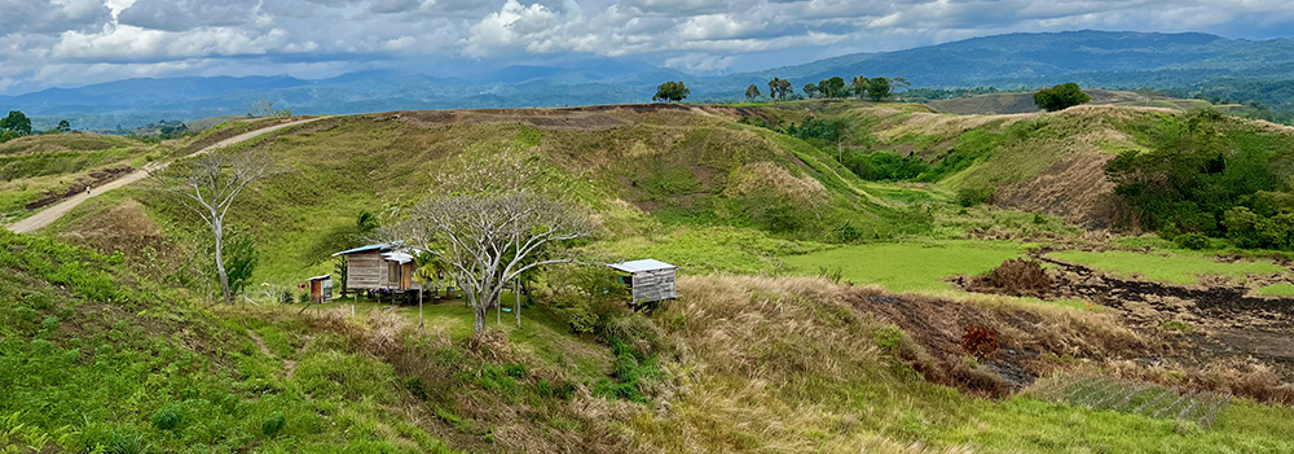August 7 is marked as the 81st anniversary of the World War Two Battle of Guadalcanal – one of the most crucial contests during the war for the Pacific.
Between August 1942 and February 1943 US and Japanese forces fought three land battles and seven naval engagements in their fight for control of Guadalcanal and the Solomon Islands. In one major assault, in September 1942 Japanese forces tried to take the island's main airfield by crossing a narrow, grassy 1,100 yard (1,000 meter) long coral ridge consisting of three hills, known as Lunga Ridge.
The area was bombed from the air and shelled by Japanese warships before the battle began, then artillery, mortars and grenades were used extensively by both Japanese attackers and US Marines defending the ridge. Intense hand-to-hand fighting and repeated Japanese assaults led to the hills being known as Bloody Ridge and renamed Edson's Ridge - for the commander of the US forces during the battle.
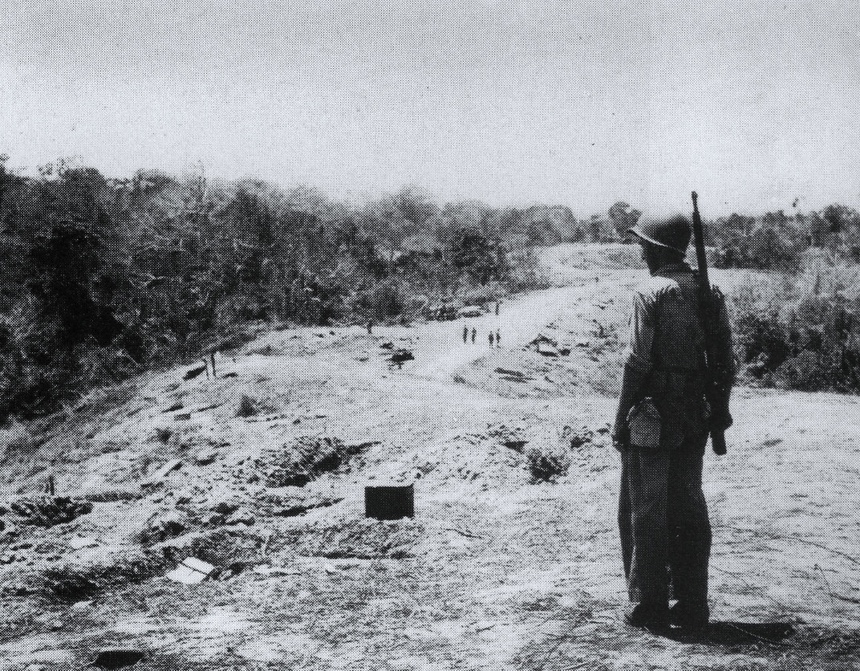
The Bloody Ridge in 1943
The gruelling six-month Guadalcanal campaign left large swathes of the island heavily contaminated with unexploded ordnance (UXO) fired from air, land and sea. While US and allied forces disposed of ordnance following the war, much remains on and beneath the surface.
As the island’s population expanded following the war, people claimed and settled on land on and around Bloody Ridge, where 1,800 people live today. Around 70 per cent of residents are informal settlers on government-owned land and most originate from other islands, having moved to Guadalcanal in search of improved economic opportunities. Anecdotal evidence suggests that migrating populations with less financial security are more likely to be driven to unsafe behaviour such as explosive harvesting.
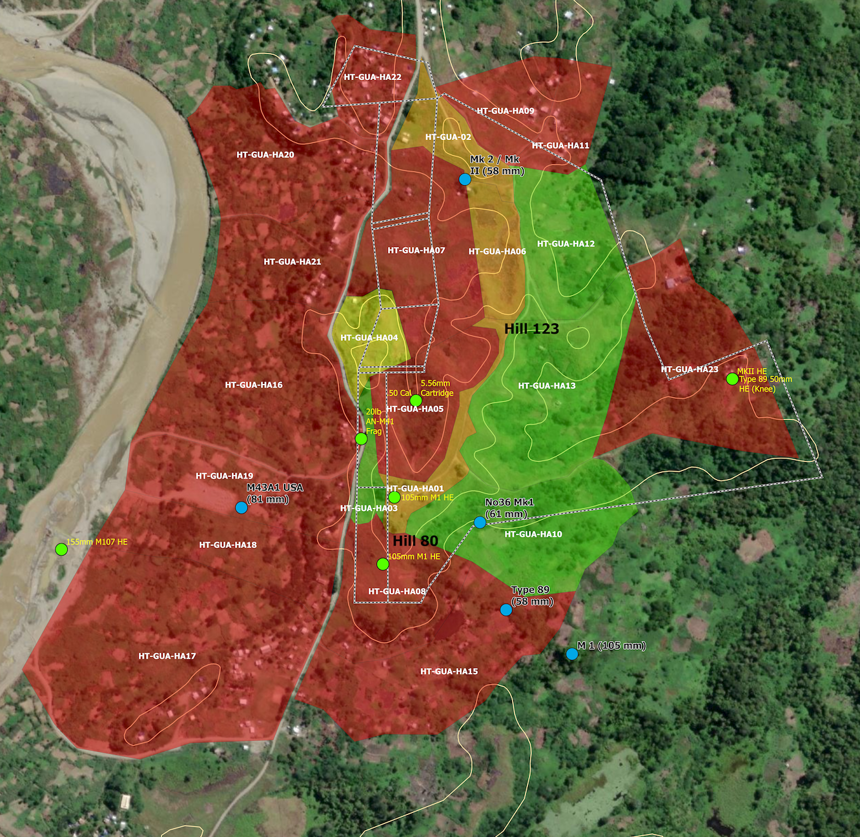
Survey areas colour-coded by priority
With funding from the US Government, HALO began operations on Solomon Islands in June 2023 by conducting a survey of the Bloody Ridge, part of a nationwide assessment of UXO contamination.
In total, HALO identified 22 hazardous areas totalling 1,097,901m2 of UXO-contaminated land (equivalent to 154 football/soccer pitches), which are categorised by clearance priority and community land use type.
Areas close to or on residential and agricultural land are designated highest priority tasks, while polygons further away from populated areas and for other types of community use are classified as lower priority for clearance.
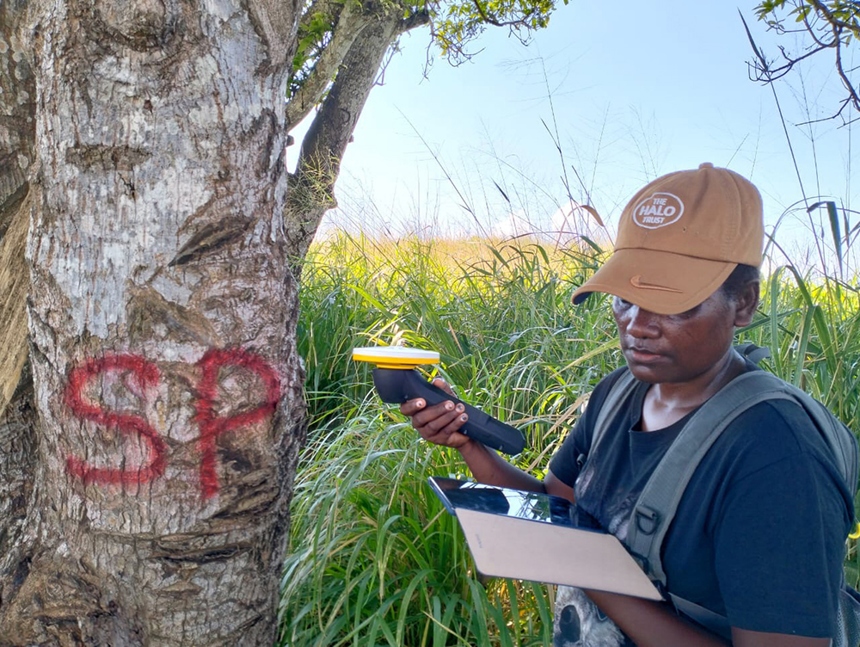
HALO staff conducting survey
Local people are using the land primarily for farming and to build homes - both of which involve ground excavation which is potentially hazardous. Commercial clearance of contaminated areas near to Bloody Ridge in the past has uncovered tens of thousands of UXO beneath the surface, while the Royal Solomon Island Police Force (RSIPF) has conducted 57 explosive ordnance disposal (EOD) call-outs to dispose of UXO encountered by HALO staff and local people since 2011. Many community residents demonstrate unsafe UXO practices, for example, by burning items to get rid of them.
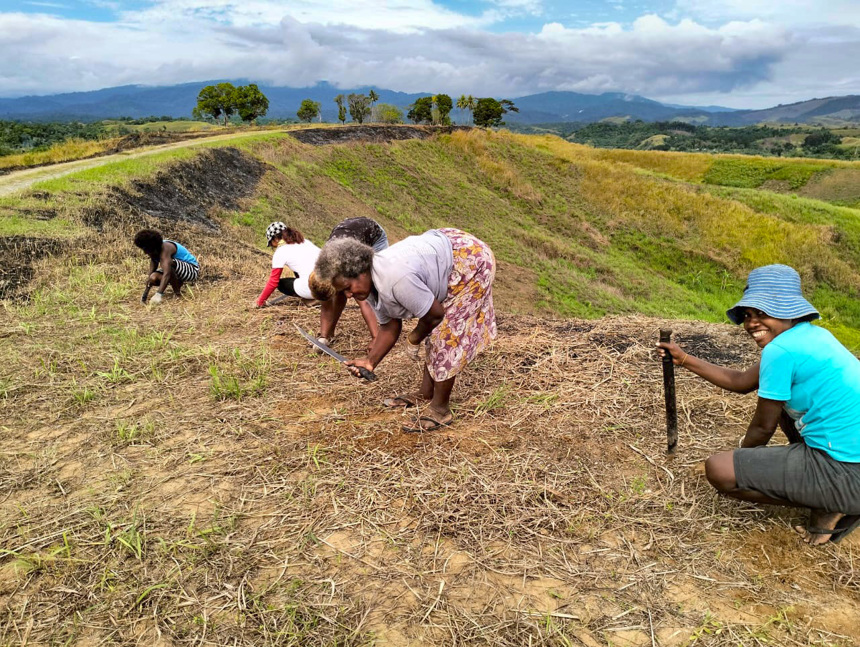
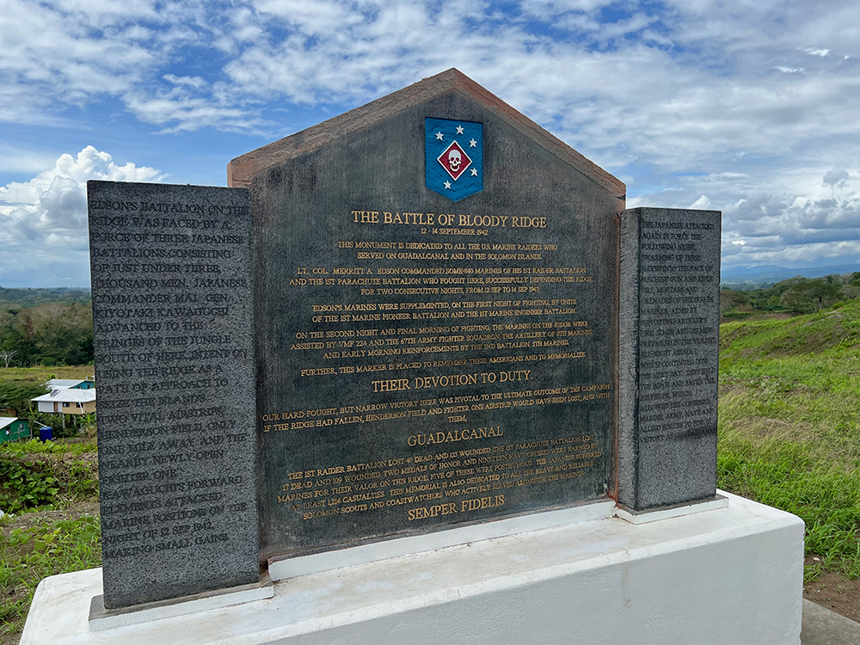
The Solomon Islands Ministry of Tourism plans to develop Bloody Ridge into a sustainable tourist attraction, conserving the landscape and relics associated with the battle, while also using the site as a place to commemorate peace, unity and friendship. The Ministry plans include construction of a restaurant, a guardhouse, an information centre and road improvements including a car park. Additionally, it has plans to reforest parts of the national park and plant flower beds.

